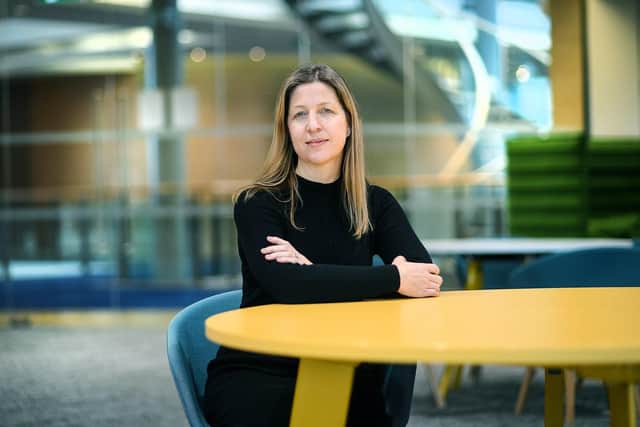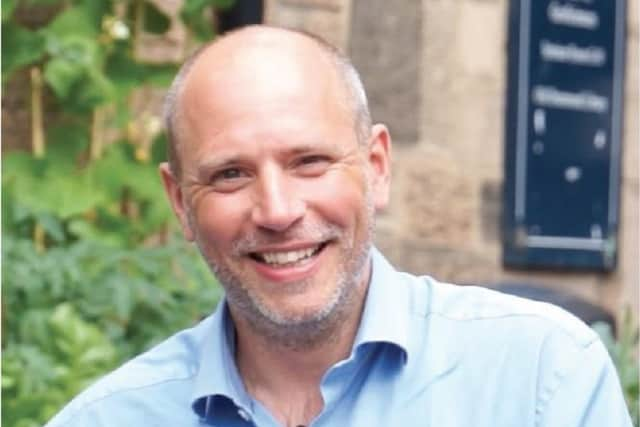Podcast: Businesses cutting energy and costs with Climate Springboard
Participants in the latest Scotsman Sustainable Scotland podcast, in partnership with Royal Bank of Scotland, explained how taking action now to reach net zero can give businesses a boost in several ways.
Judith Cruickshank, managing director of the commercial bank at Royal Bank of Scotland and the climate sponsor for the commercial bank across NatWest group, along with Dave Reay, professor of carbon management and education at the University of Edinburgh, and director of Edinburgh Climate Change Institute at the University of Edinburgh, discussed the ways in which businesses can be more sustainable.
In the podcast they covered how Climate Springboard, a collaboration between Royal Bank and the Edinburgh Climate Change Institute, works with SMEs to assist them in their sustainability ambitions. It is a support programme that helps Royal Bank customers take action to succeed in a net zero economy and become leaders in the energy transition. The free programme focuses on workshops where like-minded businesses can learn and share experiences and solutions to net zero challenges.


Asked in the podcast - ‘Taking action with Climate Springboard’ - about why it’s vital for businesses to cut emissions now, Professor Reay said: “It’s good for the climate, but it’s also good for business. Cutting emissions gives you the ability to reduce overheads and it makes your business more resilient to things like energy price shocks.”
Expanding on how businesses can become more energy and cost efficient, particularly during the current cost of living crisis, Professor Reay said: “Understanding where your energy is being used and reducing it where possible is also going to save money. This is crucial for the long term sustainability of a lot of businesses, particularly SMEs.”
And Judith said: “Some businesses are really struggling with multiple competing pressures in the current economic climate. We look at where we can help customers save money today, while reducing their carbon impact through energy efficiency. Some corporates are now demanding that companies in their supply chain cut their carbon footprint and we can help our customers be more competitive in that way.”
Judith added: “It's absolutely good for business. And if we look at talent coming into the workforce, sustainability is an increasingly important factor of where they want to work. Making sustainable choices and moving your business in that direction is becoming really important to attract and retain talent.”


The podcast sets out the many ways Climate Springboard supports SMEs. Professor Reay said the programme “does the hard work for businesses”. “It makes it easy for you to carry on doing your day job of running your business but in a way that saves money by cutting energy use and carbon emissions,” he added.
Judith described how Climate Springboard helps companies by encouraging collaboration. She said: “The programme gets cohorts of between 10 and 20 customers together on their journey. They can share best practice on energy usage, even if they’re not in the same sector. It’s open to any of our SME customers who feel they will benefit from it. And it’s really targeted at businesses who don’t have the luxury of a dedicated climate team or person.”
There is a new cohort joining Climate Springboard (https://edinburghcentre.org/) on 2 November and recruitment is still open if businesses wanting to sign up for that or future sessions.